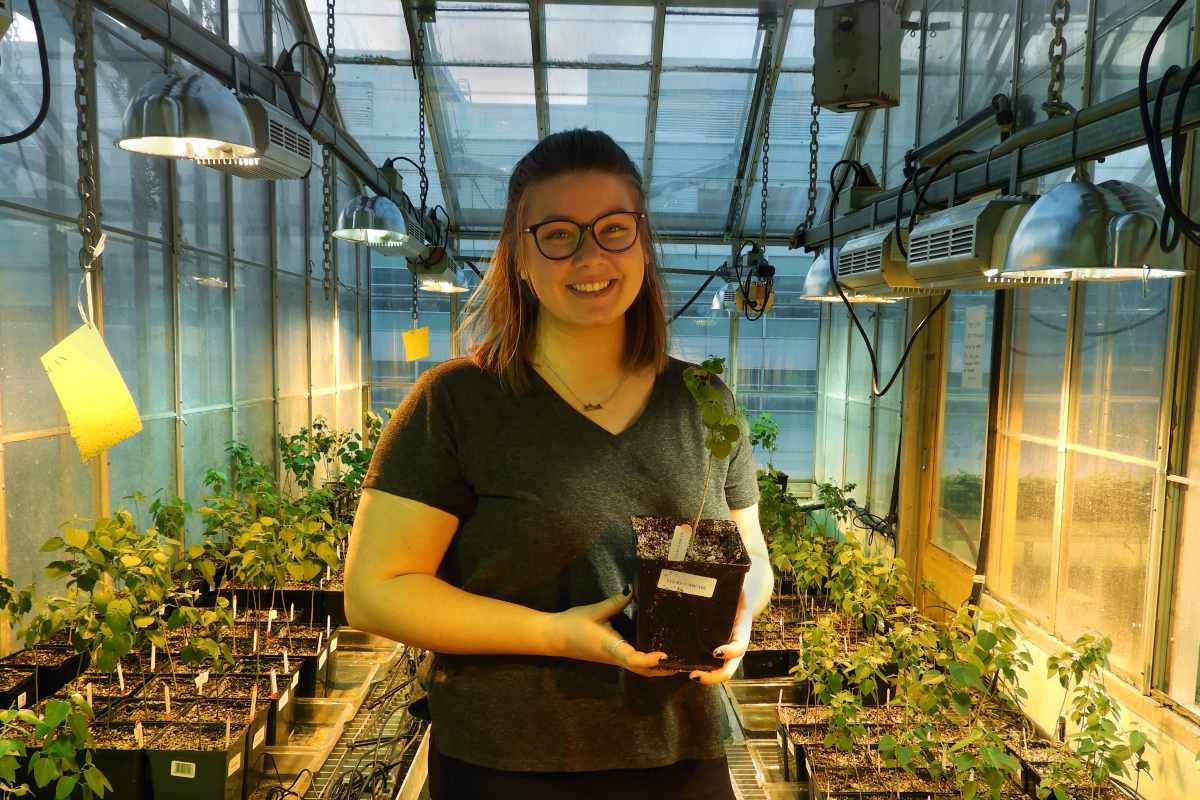
Stephanie Rudnew, member of the graduating class of Spring 2020. Photo supplied.
Convocation is fast approaching, and while it’s taking a new format this year with a virtual celebration on June 12, the pride of the University of Alberta and the Faculty of Science in our students—and our graduating class—is stronger than ever.
Meet Stephanie Rudnew, graduating with a BSc from the Department of Biological Sciences with a specialization in ecology, who looks back on her undergraduate studies and learning opportunities through the Science Internship Program and field school opportunities at Bamfield Marine Sciences Centre.
What led you to pick UAlberta for your studies?
I was drawn to UAlberta specifically because of the ecology specialization program. At the start of my degree, I knew I loved biology but was not sure what topics I wanted to focus on for a career in the future. The ecology program was the perfect choice because it allowed me to learn about a variety of topics and disciplines that remained relevant to each other and my general interest in ecology.
Tell us about your experience in the Faculty of Science.
Throughout my degree, I’ve had so many opportunities to explore my interests and meet amazing, like-minded people, which definitely made up for all the stressful and overwhelming moments. By participating in the Science Internship Program and completing independent research projects, I discovered my passion for forest health and plant ecology. I was also able to explore my life-long interest in marine systems through a summer course at the Bamfield Marine Sciences Centre and by joining the U of A Scuba Club executive team. I ended my degree with a clear idea of my future goals, and some amazing friends who are equally as passionate about nature and conservation.
What is one of your favourite memories from your time at UAlberta?
One of my favourite memories is having completed a summer field course at the Bamfield Marine Sciences Centre. Snorkelling in a giant tide pool and spending almost every day island-hopping to study intertidal plant and animal diversity was an immersive experience I’ll never forget. I also got to spend my downtime searching for whales, seals, and nudibranchs, or huddled up around a bonfire with some great people.
What advice do you have for current and future students at the Faculty of Science?
My advice for current and future science students may be pretty simple, but I recommend getting involved in different communities—whether it’s through internships, research, clubs, sports, or studying abroad. In my experience, joining groups and meeting new people helped me acquire skills and knowledge relevant to both my academic and personal lives, improve my mental health, and develop new hobbies like scuba diving with the U of A Scuba Club. However, one of the most important lessons I learned is remembering to prioritize my mental health, even if it means missing out on interesting experiences. There will always be future opportunities to look forward to, and it’s important to be well-rested when they come along.
How have you spent your time during COVID-19 distancing?
Aside from working as a research assistant, I’ve spent most of my COVID-19 distancing time reading novels and playing music. My personal hobbies often came second to school work during my degree, so it’s actually been really nice to focus on the silver lining of social distancing and dedicate this time towards unwinding at home and rediscovering my non-academic interests.
How do you plan on celebrating convocation?
I plan on celebrating convocation with my family and spending some quality time with them, hopefully while roasting marshmallows around a fire pit.
What's next after graduation?
After graduation, I plan to pursue a master’s degree related to botany or forest health. I also had some travel plans that were cancelled due to COVID-19, so I look forward to backpacking, scuba diving, and exploring more of our planet once it’s safe to do so.